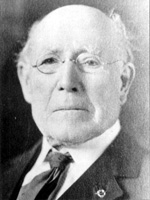In light of the crucial role ethnic studies plays in education in the state of California, California State University, Northridge’s University Library recently purchased several important databases and digital archives to make the resources available to educators throughout the region.
The new purchases join other ethnic studies online resources that the University Library has acquired in recent years, including the digitized historical archive of the Los Angeles Sentinel, the Chicago Defender, the Black Studies Center, the Chicano Database, and the online Hispanic American Periodicals Index.
“I am extremely pleased that CSUN students and faculty will now be able to delve more deeply into primary sources of historical significance for communities of color in the United States,” said Mark Stover, dean of CSUN’s University Library. “This is a transformational moment for the university in terms of the acquisition of primary source databases and digitized historical newspaper archives.”
Stover thanked CSUN Provost Mary Beth Walker and the California State University Chancellor’s Office for providing the funding to make the purchase possible.
“The study of primary source documents is crucial to the disciplines found within ethnic studies, women’s studies, and other related fields of research.” Stover said. “These purchases provide CSUN students and faculty, as well as educators across the region, with an important path to improve their educational experience and increase their opportunities for educational success”.
The library’s new digital resources include “African Americans And Jim Crow: Repression & Protest, 1883-1922,” documents covering the lives of African Americans
during the rise of segregation and Jim Crow and American Indian Histories and Cultures,”
an archive contains manuscripts, artwork and rare printed books dating from the earliest contact with European settlers to photographs and newspapers from the mid-twentieth century.
Students and researchers also can browse through a wide range of rare
and original documents including treaties, speeches, diaries, historic maps and travel journals. Among the new databases is the “American Indian Newspapers,” which includes historic pressings as well as contemporary periodicals, with nearly 200 years of Indigenous print journalism from the United States and Canada. These newspapers represent a wide variety of
publishers, audiences and eras, reported by and for Indigenous communities.
Other databases include “Black Life in America,” the experience and impact of African Americans as recorded by the news media, from 1704 to 1975; “Ethnic American Newspapers, 1799-1971,” which has more than 130 fully searchable newspapers in 10 languages from
25 states, including many rare 19th-century titles. Extensive coverage of many ethnic groups, covering immigrant contributions to U.S. business, music, science, education, labor movements and war efforts; and “Ethnic Diversity Source,” a full-text database is a dedicated resource covering the culture, traditions, social treatment and lived experiences of different ethnic groups in America, including African Americans, Arab Americans, Asian Americans, European Americans, Jewish Americans, Latinx Americans, Native Americans, and multiracial Americans. This database provides full text from a growing list of sources including peer-reviewed journals, magazines, e-books, biographies and primary source documents.
Other databases cover such topics as Japanese-American incarceration during World War II, including relocation camp newspapers; race relations in the United States from 1943-1970; the History of the Americas, 1500-1926 based on Joseph Sabin’s landmark bibliography; and a library of the history of women in social movements, between 1600 and the present.
To learn more about the new resources, visit the University Library’s A-Z Databases at https://libguides.csun.edu/az.php.
The University Library is the intellectual heart of CSUN, serving the educational needs of more than 38,000 students and investing in an information infrastructure that fosters critical thinking, information competence, innovation and discovery, and knowledge creation.
Like this:
Like Loading...
Related





 Tweet This
Tweet This Facebook
Facebook Digg This
Digg This Bookmark
Bookmark Stumble
Stumble RSS
RSS
































REAL NAMES ONLY: All posters must use their real individual or business name. This applies equally to Twitter account holders who use a nickname.
0 Comments
You can be the first one to leave a comment.